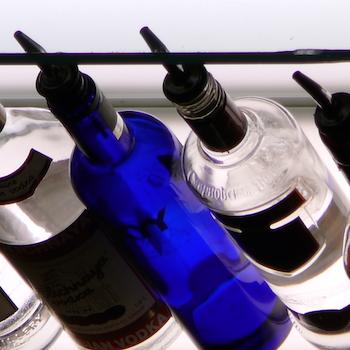I'm often left shaking my head in amazement at the CDC, for both good and bad reasons.
First, the good: The Centers for Disease Control and Prevention are the scientific equivalent of superheroes. Whenever and wherever a disease outbreak occurs, they are frequently called to the scene, no matter how dangerous the situation. Officials from the CDC were recently sent to Africa to help with the Ebola outbreak in the Democratic Republic of the Congo, only to be withdrawn due to other security concerns. CDC workers literally put their lives on the line to fight infectious disease.
Now, the bad: The CDC's foray into chronic disease too often reveals that they don't know what they're doing. For instance, as Dr. Josh Bloom explained, the CDC's recommendations on opioid prescriptions failed to address the true cause of the problem and mostly resulted in the denial of vital medicine to chronic pain patients. In other words, the restrictions caused unnecessary suffering and solved absolutely nothing.
Well, the CDC has returned with another odd policy proposal: It supports an alcohol tax and limiting the number of places that can sell alcohol... to help fix the opioid crisis. What?
To Help Fix Opioid Crisis, CDC Strangely Recommends an Alcohol Tax
In a new paper published in the American Journal of Preventive Medicine, a team of researchers from the CDC provide data showing that binge drinkers tend to abuse opioids. Specifically, binge drinkers had 1.7 times the odds of abusing opioids as non-drinkers. (See the adjusted odds ratio (AOR) in the right-hand column below.) So, case closed, right? We should raise taxes on alcohol and regulate how many places can sell alcohol.
Well, hold up. What does the data show about regular (non-binge) drinkers? Are they more likely to abuse opioids? No. The odds ratio is exactly 1.0, which means that drinking alcohol in moderation does not increase the odds of opioid abuse.

Therefore, it is bad policy to punish alcohol drinkers with higher taxes simply because a minority of them can't control themselves. It would be like adding a special tax to automobiles because some people choose to drive them at 100 mph.
The paper gets weirder. The authors looked at other risk factors and found that the odds of opioid abuse were 2.1 times and a whopping 4.6 times higher among cigarette smokers and marijuana users, respectively. (See AORs in the right-hand column below.)

Yet, the CDC didn't endorse any specific policy in regard to cigarettes or marijuana. Shouldn't the CDC have supported higher taxes on both, or perhaps offered a statement cautioning about the trend toward marijuana legalization across the country?
There's a New Puritanism Against Alcohol
What explains the CDC's focus on minimizing alcohol consumption while ignoring marijuana? It's difficult to speculate, but undoubtedly, there is a new puritanism against alcohol in certain scientific journals. The worst offender is The Lancet, which has decided -- against all evidence -- that any alcohol whatsoever is bad for your health. Perhaps the CDC has decided to play along.
Even more troubling is the fact that the CDC did not offer any policy proposals for marijuana. The odds of opioid abuse are much higher among pot users than binge drinkers, so why not suggest increasing taxes or restricting the sale of marijuana (or keeping it illegal)?
This contradiction is strange. It's almost as if the authors set out to say something negative about alcohol and then ignored their own data.




